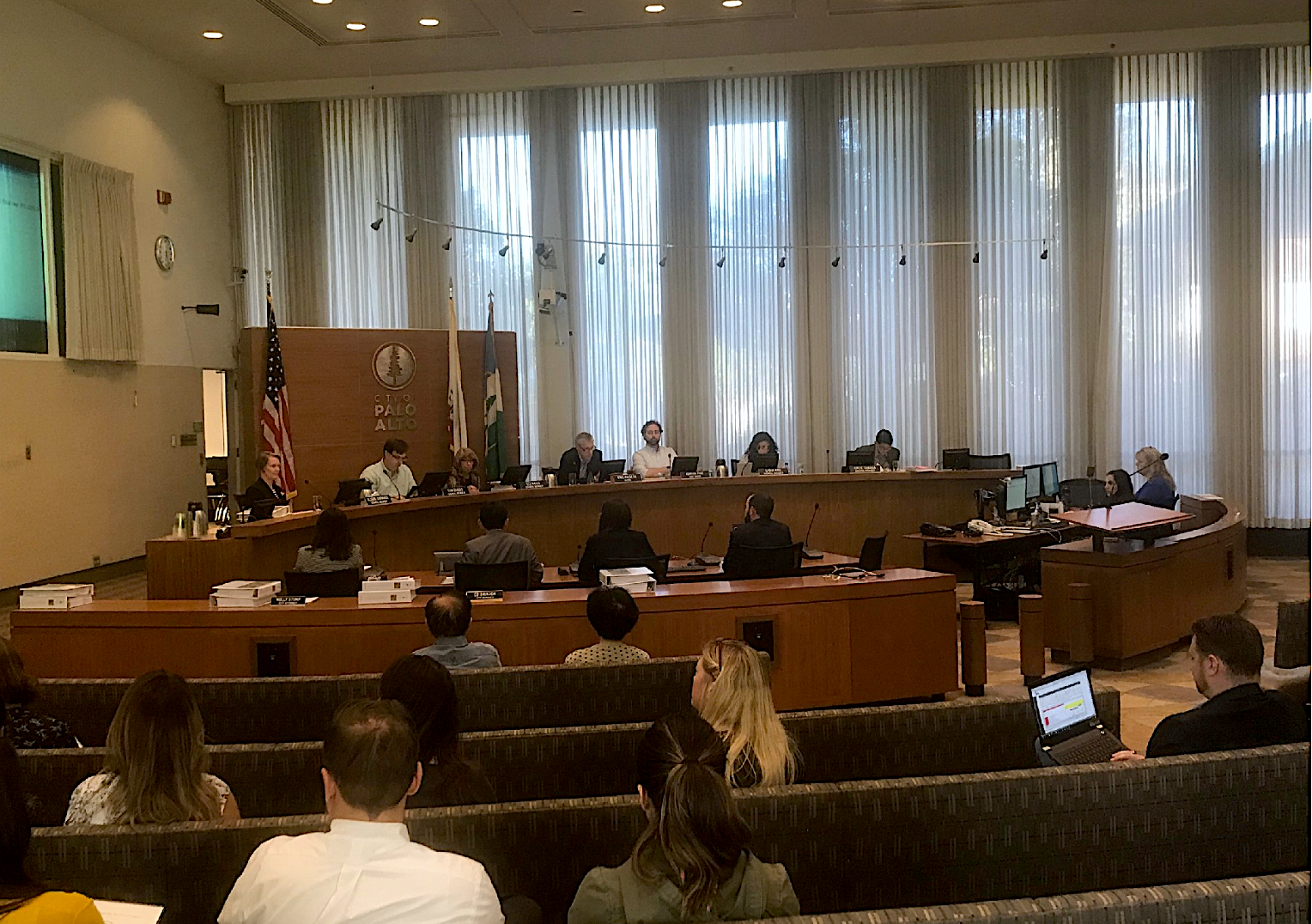The Palo Alto City Council passed motions regarding a citywide Transportation Impact Fee (TIF), revenue generating measures and rail grade separation on Monday evening.
The modified and increased TIF, which is a fee developers will pay to account for their impacts on transportation infrastructure, was adopted in a 5-2 vote with exemptions added for public facilities, schools and accessory dwelling units (ADUs). First established in 2007, the citywide TIF aims to accrue funding for transportation improvements. The motion passed by the Council will target peak-hour transit and manage transportation demand by incentivizing trip reduction.
The City Council also approved a work plan for revenue generating measures to support the 2019 Fiscal Sustainability Work Plan. Prior to the vote, various stakeholders, including a Chamber of Commerce representative, voiced their support for an ambitious business tax in Palo Alto. Council members noted that this motion was only the “beginning of a conversation,” and future discussions are likely to focus on more specific uses for the generated revenue.
The last action item on the agenda dealt with rail grade separation needs and solutions, a major infrastructure project with substantial public investment. Grade separation allows trains and other vehicles to pass each other on different levels, using bridges or underpasses.
After hours of discussion and public input, the Council unanimously passed a motion (with two members recusing themselves) to adopt the plan with minor amendments. The initial rail work plan proposed the formation of a community working group, a revised list of alternative solutions and directions to city staff to come back with a contract amendment from engineering firm AECOM. The motion that was passed temporarily rejects the city staff’s recommendation to remove a citywide tunnel as an alternative solution and holds that the community working group should be purely advisory under the law, rather than a formal decision-making body subject to conflict of interest rules.
The Council also held a study session to address City Manager Ed Shikada’s proposed $700 million budget for the upcoming fiscal year, which he says “represents significant progress on all the city council’s priorities.” The budget is focused on progressing towards fiscal sustainability, increasing transportation resources and funding pension liabilities and public-private partnerships. A hearing to approve it will take place in coming months.
Former mayor of Palo Alto Nancy Shepherd also attended to announce the first annual Palo Alto Day on April 28, which will celebrate the city’s 125th birthday.
This article has been corrected to reflect a more accurate description of the Transportation Impact Fee. The Daily regrets this error.
Contact Kaylee Beam at kbeam97 ‘at’ stanford.edu and Caroline Ghisolfi at ceg1998 ‘at’ stanford.edu.
